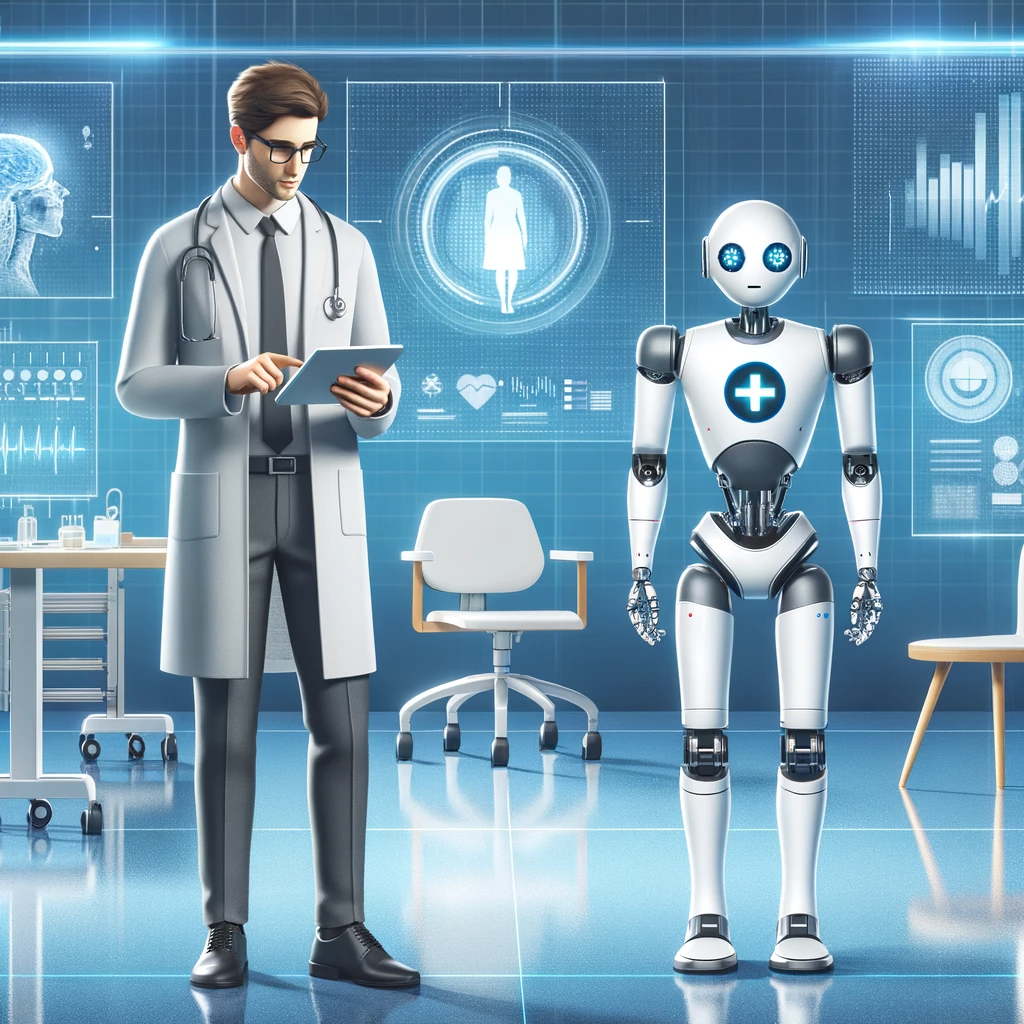AI in Healthcare: Building Public Trust for a Healthier Tomorrow
What if your doctor wasn't human? Artificial intelligence is transforming healthcare, but will patients embrace robot doctors? Welcome to the future of medicine. AI tools are revolutionizing the healthcare sector, offering innovative solutions for patient care, diagnostics, and administrative tasks. However, a substantial "confidence gap" among the public remains a key challenge that we must address to fully realize the potential of AI in healthcare. Let's explore the diverse AI tools used in healthcare and why bridging this confidence gap is crucial for a healthier future.
AI Solutions: Transforming Healthcare
AI is driving innovations across healthcare, from medical imaging analysis to optimizing hospital operations. Advanced systems can interpret scans, streamline records, provide clinical decision support, speed drug discovery, predict patient needs, detect fraud, and integrate with healthcare IoT devices. These diverse applications hold vast potential to transform medicine through more accurate, personalized, and efficient care. For example, AI imaging tools can help detect cancer earlier, and machine learning algorithms can predict patient risks in real time. Let's look at some of the key tools.
1. Medical Imaging Analysis: AI can analyze medical images such as X-rays, MRIs, and CT scans with impressive accuracy, aiding in the early detection of diseases and reducing the workload on radiologists.
2. Natural Language Processing (NLP): NLP helps extract valuable insights from clinical notes and records, streamlining the documentation process and making data more accessible.
3. Clinical Decision Support: AI-powered systems provide healthcare professionals with evidence-based recommendations, facilitating more informed decision-making.
4. Drug Discovery: AI accelerates drug discovery by identifying potential candidates and optimizing clinical trial designs.
5. Disease Prediction and Risk Assessment: Machine learning models predict disease risk factors and assess patient health, enabling more proactive and personalized care.
6. Remote Patient Monitoring: AI-enhanced devices and wearables enable continuous patient monitoring, enhancing telemedicine and home-based care.
7. Healthcare Chatbots: AI-driven chatbots assist patients with information, scheduling, and initial diagnostic support.
8. Robot-Assisted Surgery: AI enhances surgical precision, offering real-time feedback to surgeons during procedures.
9. Predictive Analytics: AI can forecast patient admissions, optimize resource allocation, and improve hospital management, leading to more efficient healthcare systems.
10. Genomic Analysis: AI aids in interpreting and analyzing genomic data for personalized medicine and targeted treatments.
11. Drug Adverse Event Monitoring: AI algorithms help identify adverse events related to medications, enhancing patient safety.
12. Fraud Detection and Healthcare Billing: AI can detect fraudulent activities and errors in healthcare billing and insurance claims, saving costs and ensuring fair billing.
13. Healthcare IoT: AI integrates with IoT devices to collect and analyze patient data from various sensors and devices, enhancing patient care and monitoring.
14. Mental Health Support: AI-driven platforms offer support and therapeutic interventions for mental health conditions, addressing gaps in mental healthcare services.
With this powerful range of applications, AI holds vast potential to transform healthcare by improving patient outcomes, reducing costs, and enhancing the overall quality of care. However, as promising as these innovations seem, a lack of public confidence poses a major challenge.
Building Trust in the AI Doctor
The scepticism surrounding AI's application in healthcare raises concerns about its widespread adoption. Education and transparency can increase the public’s trust in AI. Patients and healthcare providers need to understand how AI operates, its benefits, and its limitations. For instance, some are concerned AI diagnoses may miss nuances a human doctor would catch. Transparency in AI systems is essential for building trust, and patients should be informed about the use of AI tools in diagnosis and treatment.
Moreover, governance and ethical safeguards are necessary to ensure the responsible and ethical use of AI. There is a global push for the importance of regulating AI use to protect patient data and ensure its responsible application.
Moving Forward with Human and Machine
The age of AI medicine is here, bringing innovations once unimaginable. As we've seen, AI can analyze data, support clinicians, advance research, and optimize care remarkably well. But addressing public concerns is crucial. The human touch is irreplaceable in healthcare, but we can educate patients and healthcare professionals, implement transparency in AI systems, and establish ethical governance to build confidence in AI and ensure it is used to its full potential in healthcare. Together, human intellect and AI capabilities can take medicine to new heights. The future of healing is both technological and human—it's cooperative.
Let's collaborate on ethical AI that builds trust and improves care. We'll map an integrated plan to maximize benefits and build a cooperative human + AI medical future. Contact us to get started.
